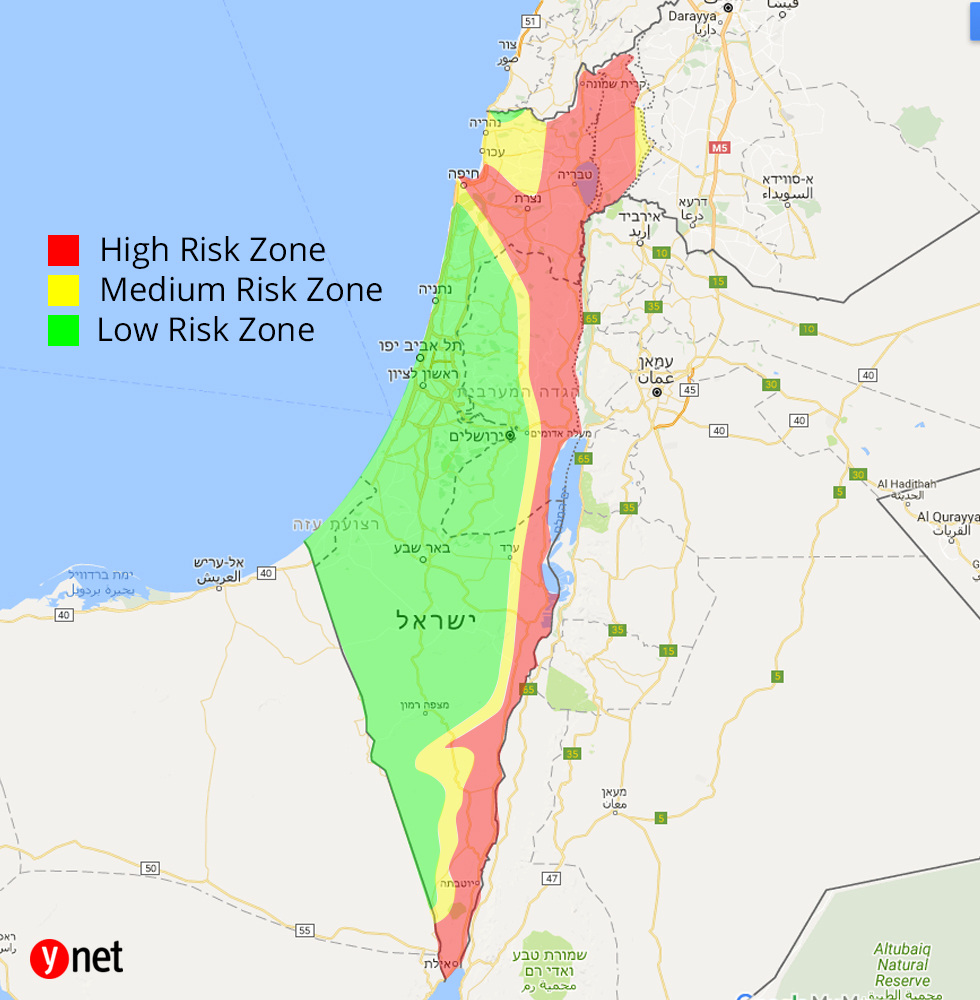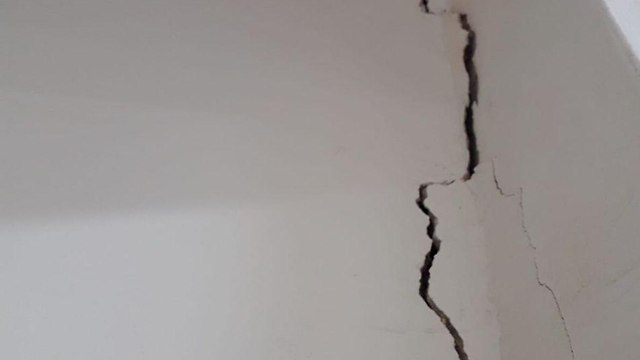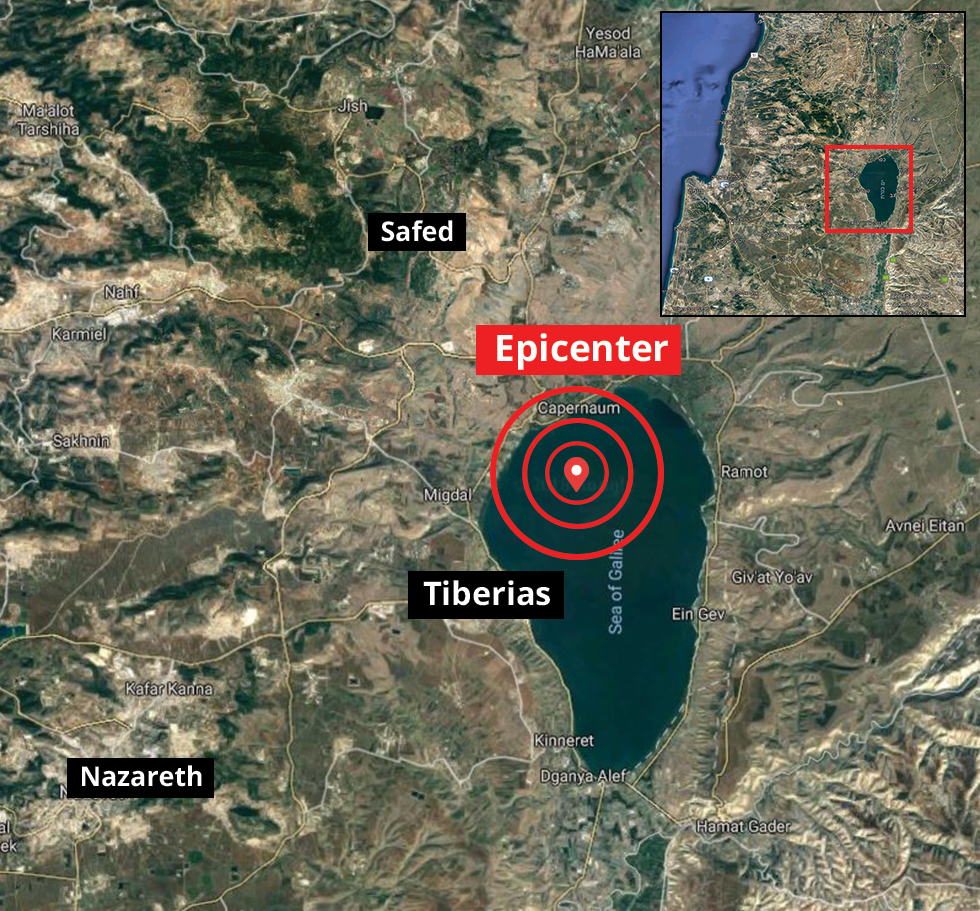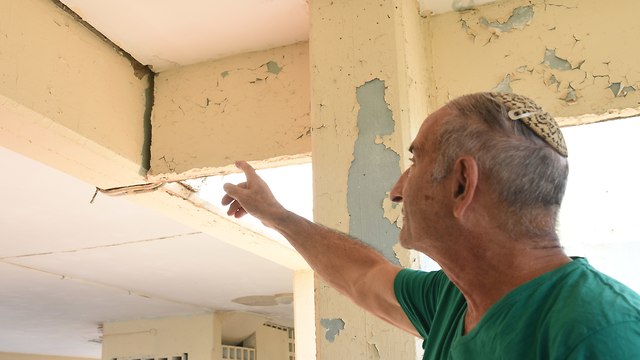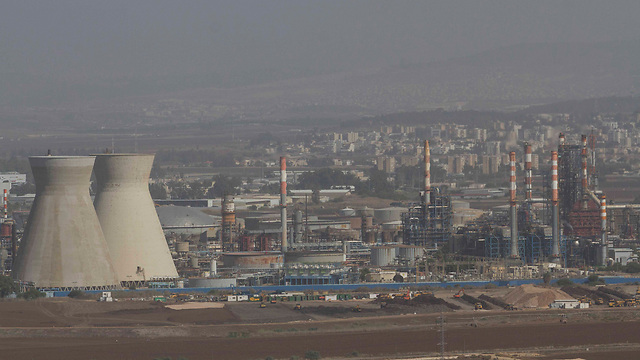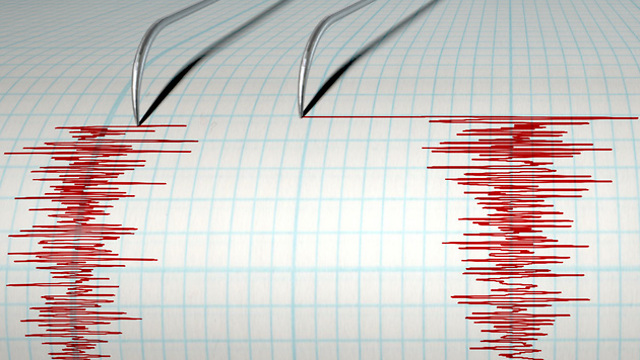

Expert warns major earthquake expected soon
Following a series of tremors over the last few days, retired IDF Home Front colonel says Israeli residents should prepare for a major earthquake to rip through Israel from north to south; Local authorities in north say infrastructure in urgent need of an upgrade.
It is unclear exactly when the earthquake is going to occur but after a series of tremors felt across the country over the past 72 hours, it a question of when rather than if, according to Col. Gili Shenhar (Ret.).
“In our area earthquakes happen. The last major earthquake struck in 1927, and the one before was in 1836, so we understand that every 100 years a serious earthquake strikes,” added Shenhar.
He also warned the public against becoming complacent, emphasizing that a major earthquake is significantly different to the tremors felt over the last few days.
“A 5.0 magnitude earthquake is 30 times stronger than a 4.0 magnitude tremor. People need to understand the difference in the multiplication. A 6.0 or a 7.0 earthquake might lead to the collapse of buildings and infrastructure. An earthquake is an unexpected event, therefore we need to prepare for it beforehand,” explained Shenhar.
During an inspection by the Education Ministry at the Kaduri Elementary School in the Lower Galilee, it was found that the main building of the school was damaged in the latest earthquake.
Head of the Lower Galilee Regional Council, Moti Dotan, said the building in question is over 60 years old.
“The supervisor decided the building was too dangerous, especially in light of the possibility of another earthquake. We’ve told the parents that at the beginning of the next school year we’ll move to a temporary building. At the end of the day everything's for the best and the school will get a new building,” concluded Dotan.
As part of the Uri project, the Home Front has trained over 74,000 school students all across the country to act as first responders in case of an earthquake until the arrival of professional rescue teams. In addition, employees of local authorities have also been trained to provide help in the immediate aftermath of a major earthquake.
In Tiberias, which is close to the earthquakes’ epicenter, dozens of buildings located in old neighborhoods have been upgraded by the Ministry of Construction and Housing in cooperation with Amidar and the Neighborhood Restoration Project.
In the norther city of Safed, which is also close to the epicenter, no measures have been taken over the past few years to upgrade the older structures despite the promises from the government to invest.
The Mayor of Safed Ilan Shohat said the Defense Ministry promised to invest NIS 5 billion in upgrading strategic locations in the north especially the Rebecca Sieff Hospital.
However, according to Shohat an upgraded hospital would not help if hundreds of thousands of local residents were injured when their buildings collapse.
“If the state does not provide financing and encourage contractors to upgrade buildings, we’ll be exposed to wide-scale property damage and loss of human life that would cost the government hundreds of times more than what they would have invested in the infrastructure upgrade,” vented Shohat.
Residents of the Haifa Bay are worried by the proximity of Petrochemical Enterprises to the geological split in the area.
Dr. Revital Goldschmidt from the Environmental Research Center in Haifa says that in light of recent earthquakes and a tense security situation, local residents are demanding from the government to implement the recommendations from the Shafir report.
“The recommendations include shifting the dangers out of the metropolis and putting an end to the expansion of petrochemical industries. It is inconceivable that despite the recommendations that indicate the presence of fuels and fuel plants in urban areas is dangerous, the state is advancing a plan to expand the industry, damaging both security and health, deeper into the Haifa metropolis,” Goldschmidt explained, adding that the presence of petrochemical industries in the city can be lethal in the event of an earthquake.
“Imagine if an earthquake causes landslides or a rift that rip open infrastructure with explosive and flammable materials in a dense urban area when electricity and water are already out and giant fires, which would start as a result—in addition to the ‘usual collapse of buildings’—couldn’t be extinguished,” Goldschmidt asserted.
Emergency preparedness experts say that the Israeli public, despite being accustomed to emergency situations such as war, is not prepared for a major earthquake and wouldn't know how to act once it happens.
“In Israel we don’t have experience with strong earthquakes so it’s difficult to imagine how it would look and what would happen,” said Dr. Carmit Rapaport, Director of the Institute for Regulating Emergency and Disaster Situations at the Academic Center for Law and Business, and the Academic Center of the Program for Coping with Emergency Situations at the University of Haifa.
Dr. Uri Frieslander, former general manager of the Geophysical Institute, said it is hard to predict the nature of a possible major earthquake based on the tremors Israel has experienced this week.
“Three earthquakes have been felt over the last week but actually over 30 tremors have been registered by seismic devices. Most of them could not have been felt so no one talks about them. It’s hard to predict what will happen following the earthquake that took place on Wednesday, but the concentration of tremors in the Sea of Galilee proves that there is renewed activity along the split where African and Arabian plates meet,” concluded Frieslander.














